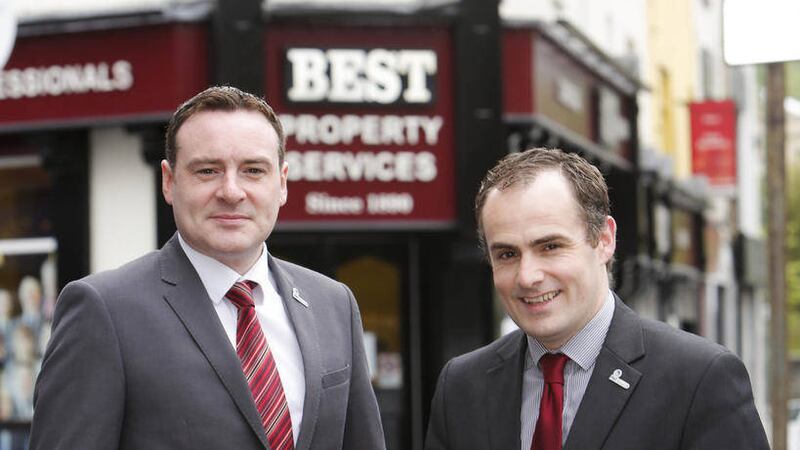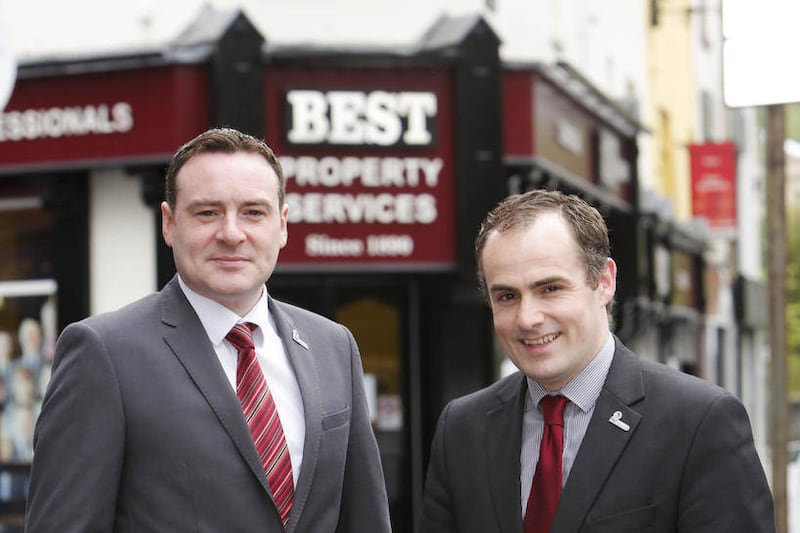The hangover from the north's devastating property crash continues to have a "significant impact" on businesses, family life and the wider economy, a team of insolvency practitioners has warned.
Two in every five borrowers in Northern Ireland with mortgages advanced since 2005 are in negative equity, shock figures have shown.
And unless the issue is dealt with, the local economy will stagnate, a lid will be kept on consumer spending - and thousands of indebted borrowers will continue to be a drain on the health service every year with stress-related problems.
The claims came yesterday from Seamas Keating and Gary Digney, who are heading up the negative equity solution team at Newry-based PKF-FPM and who both have extensive experience in the area of debt resolution.
Negative equity occurs when the value of an asset used to secure a loan is less than the outstanding balance on the loan.
"We'll not get back to wealth creation in Northern Ireland unless there is a full and final resolution to this catastrophic problem," said Keating, a chartered accountant, licenced insolvency practitioner in the UK and Ireland and a personal insolvency practitioner in Ireland.
"We've formulated what we believe is a solution which involves engaging the debtor and lender to reach a consensual agreement on a full and final settlement of the debt.
"It benefits both parties and has to be 'fair and reasonable'.
"And when a realistic proposal is reached, it allows individuals to get on with their lives, stress-free in many cases, and lets entrepreneurs do what they do best by creating wealth again.
"Don't let the debt just sit."
Digney, who is also a chartered accountant, insolvency practitioner and a personal insolvency practitioner in Ireland, added: "Negative equity does not discriminate. It effects all types of people, from directors of large companies, professionals and through to the self-employed man or woman who perhaps bought an investment property which later became a millstone around their neck.
"These individuals tend to fall into one of two categories - those on high cost variable rate mortgages on the property/properties who are struggling to pay the repayments perhaps in arrears and experiencing repossessions; or those on favourable tracker rates and are actually generating income from the portfolio, but who are dreading an interest rate rise which could turn a cash-flow surplus into a deficit.
"Having been involved in numerous full and final debt settlements, the time is now right for all the stakeholders involved to deal with negative equity problem, and we believe the PKF-FPM solution will have advantages for the individual, for the lenders themselves and also for the wider economy."
In 2007 house price rises in Northern Ireland were surpassed only by London and the south east of England, but they've since plunged to 50 per cent below their peak, and 41 per cent of borrowers with mortgages advanced since 2005 are now in negative equity.
Single people, couples with no children, borrowers with one or two-bedroom properties, those who purchased after 2005, borrowers who re-mortgaged and those in intermediate or professional occupations have found to be the most affected.
The warning from Keating and Digney at PKF-FPM comes just weeks after debt advisory firm Negative Equity NI warned of a "ticking time bomb" on negative equity
It is working with 300 homes with debt average at £68,000.
But its director Phil Davison said the real "elephant in the room" was the growing problem of interest-only mortgages - where average debt tends to be around the £100,000 mark.



